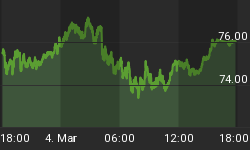The street can create some interesting phrases to describe market conditions. Often they spread quickly such as this season's recovery that has been described as "Green Shoots". The old classic "Dead Cat Bounce" has been used accurately for decades.
Green Shoots got its start in late January when Britain's Business Minister Baroness Vadera noted "a few green shoots" of recovery. Considering the date and credit conditions this was mainly wishful thinking--economically, or horticulturally.
Then with more realistic timing on April 11, Paul Krugman wrote about "Green Shoots and Tea Leaves". Carrying on with the idiom, on April 19 an economist in Wall Street reported seeing "Green Shoots in the housing market." And on May 8, The New York Times headlined "Are the Green Shoots Global?"
Unfortunately for the shrinking NYT, this was scooped the day before by the North Bay Nugget--in Ontario-- with "This week's theme--'Green Shoots'".
Regrettably, this phrase and condition will soon be withered by the drought of the resumption of disappearing liquidity.
In the meantime, it is worth reviewing some of the compelling phrases of 2007-- "Goldilocks"--which described the "perfect" management of the economy by the "Dream Team" of policymakers. For example, the Financial Post on April 25, 2007 (just before the natural turn to disaster in that fateful May) recorded:
"Chairman Bernanke has succeeded. The economy is positioned on a sustainable track for manageable expansion. A Goldilocks scenario that is neither too hot nor too cold."
Of course, Goldilocks was not the first feminine name to become popular. Strategists in the search for "Lady Bountiful" have often praised "Rosy Scenario", only to have their visions trashed by Mother Nature.
Taking the Green Shoots a little further; the "Sell in May and go away" theme can be refined to begin selling when the purple lilacs blossom and have it completed with the blossoming of the white ones.
The following chart of England's plunging economy is interesting.

"Markets are fearful of missing the next big thing, which is the big recovery."
-- Reuters, May 5, 2009.
"Evidence is piling up that the worst of the recession is over."
-- AP, May 8, 2009.
"Treasury Secretary Timothy Geithner is betting that U.S. Banks can do something that their Japanese counterparts were unable to accomplish in that county's "lost decade' of the 1990s: earn their way out of trouble."
-- Bloomberg, May 8, 2009.
In 2007, someone observed that when the Fed is the bar tender, everyone drinks until they fall down. Along this line is the saying from the 1930s: "I drank myself sober."















